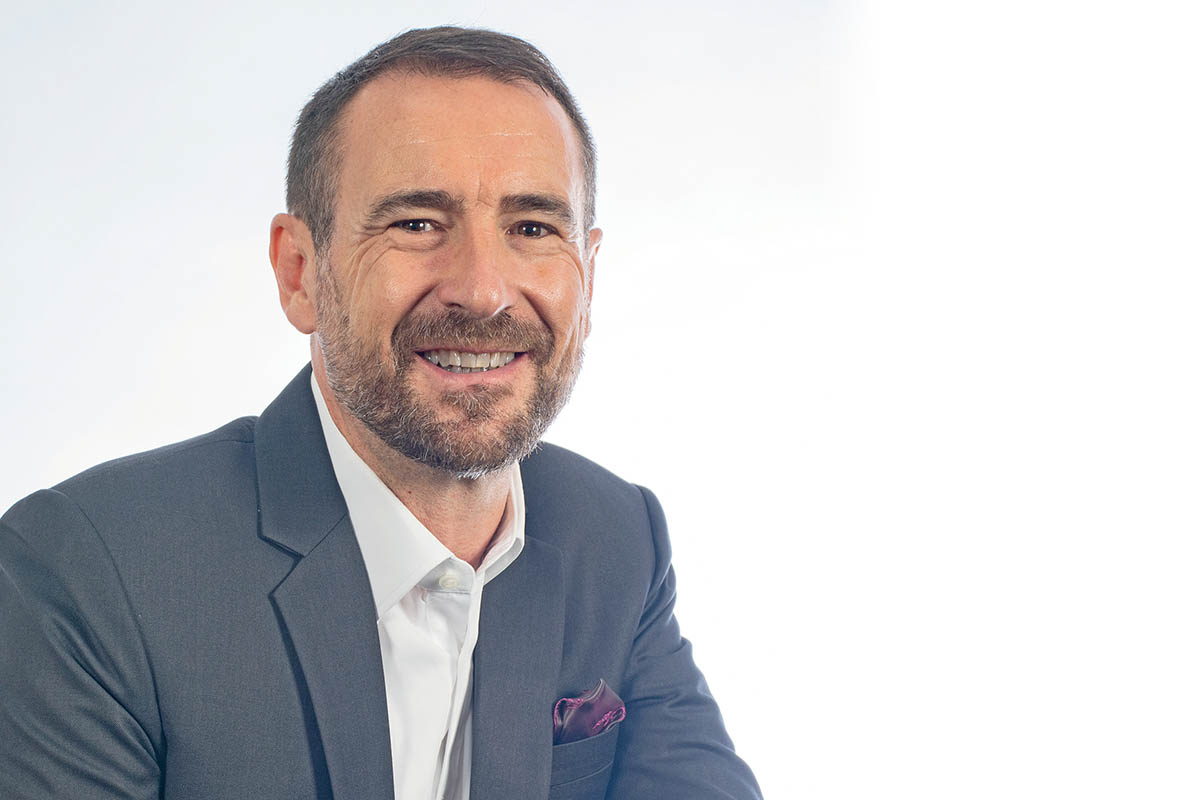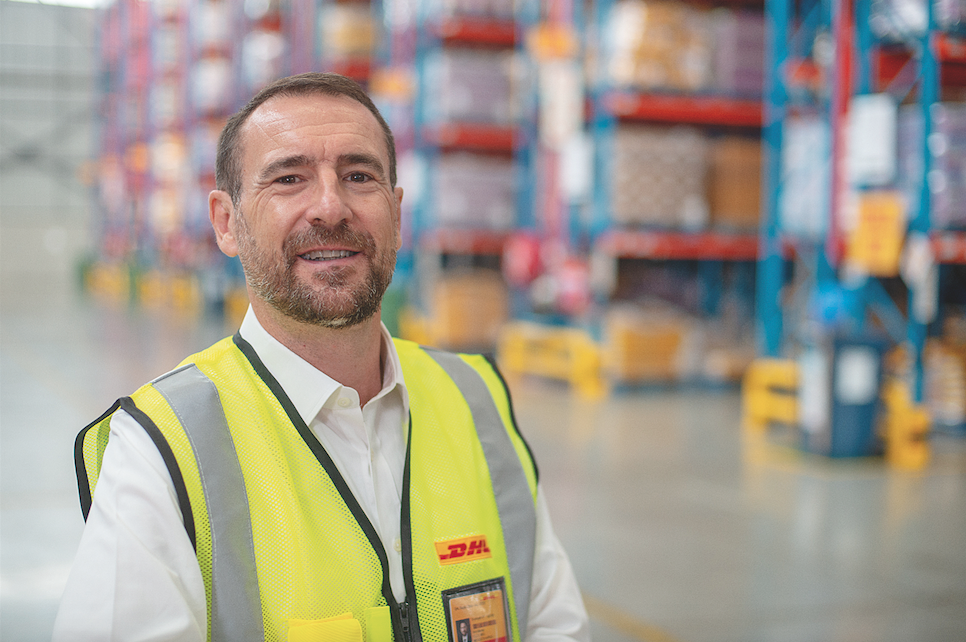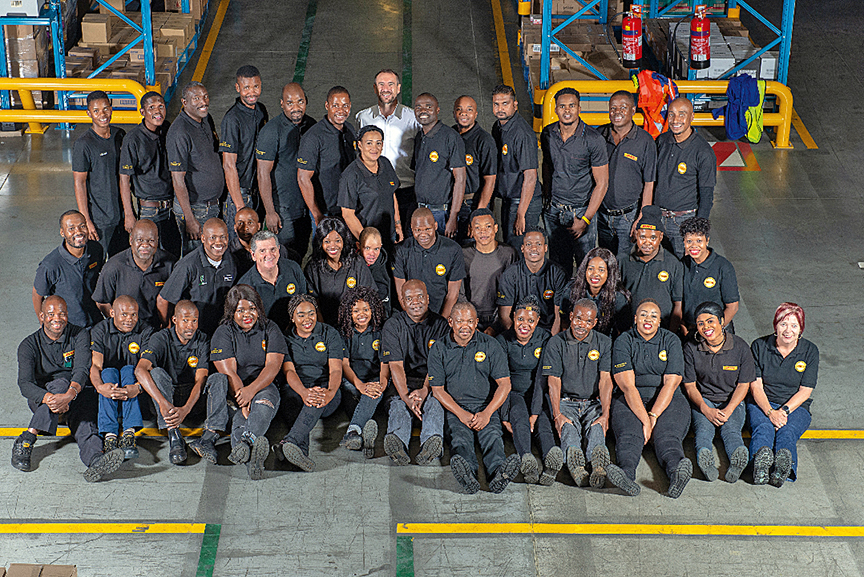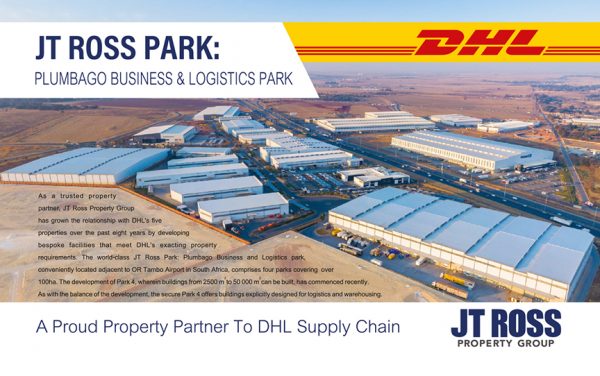For the past two decades, Nick Murray has had a career that has defied his childhood expectations. Growing up in the UK, he never expected to live and work in 10 countries, building teams of thousands of people whose work keeps the global economy running.

Today, as CEO of DHL Supply Chain Africa, that is precisely what he does. “It has almost been an accidental journey for me,” he says. “I was the first generation in my family to go to university. It was free then, so I’ve been lucky in many aspects of my career, and I think it’s important to recognise that.”
But attributing Nick’s rise within the supply chain industry solely to luck would be an incomplete assessment. Equally crucial has been his effort to understand what it means to be an effective leader, how to keep people motivated and how to satisfy customers in a challenging business environment.
After joining DHL Supply Chain in 2003 through an acquisition of one of its competitors, Nick has taken roles that have brought him from Europe to China and Saudi Arabia before dropping him off at his current post, based in Johannesburg. As CEO for Africa, he oversees an operation that transports consumer goods, automotive products and mining products to businesses across the continent.
“What we see in Africa is a quickly changing landscape where, like many emerging markets around the world, local market processes have to be clearly understood. They all have their local nuances,” Nick says.
“With Africa, the scale of the continent is so vast and the opportunities so potentially large across so many sectors that it’s all about getting the right focus and getting sufficient resources qualified and engaged to be able to manage the opportunities that come along, because there’s a lot out there that can absolutely drain you of resources and then not deliver the results you expect. It’s essential to be very selective and focus on your specialties and strengths.”
This challenge has grown especially acute since the outbreak of the COVID-19 pandemic, which has created roadblocks to the delivery of goods in the form of social distancing guidelines and lockdowns, not to mention a drop in demand due to an overall economic downturn.
However, before devising ways to overcome DHL Supply Chain’s economic obstacles, Nick has made sure to invest in something more important – keeping his workers safe.

“Since the outbreak of the coronavirus, we have implemented comprehensive protective measures at all our DHL Supply Chain operational facilities in South Africa and East Africa. These measures include reorganising processes to maintain social distancing, introducing disinfection and hygiene concepts and campaigns, compulsory wearing of mouth-nose masks and, where necessary, other protective equipment depending on workplace risk assessments, infection chain analysis and quarantine measures in cooperation with the health authorities,” he explains.
The company’s facilities have been fitted with visual reminders to adhere to the new health guidelines and, whenever possible or necessary, workers have been permitted to work from home. With these measures in place, Nick has been able to refocus on keeping the company’s facilities running and vehicles on the move.
“As a group, DHL follows a holistic management process that enables our business units to ensure the best possible operations for our customers with the help of so-called business continuity planning, even in an emergency,” he says.
“Thanks to our broad geographic set-up and comprehensive portfolio of logistics solutions, we are more resilient to navigate through crisis situations such as this.”

While DHL Supply Chain Africa faces more risks than usual during the pandemic, Nick acknowledges that there is never a time when an international business faces no risks. Pandemic or not, it takes a strong leader to make a wise decision in the face of adversity.
“It’s only towards the maturation of your career when you’ve got the confidence to do something that scares you – to be brave and dare to fail,” he says. Fortunately, these risks are mitigated by DHL Supply Chain’s heavy investments in technology and innovation.
In East Africa, where small grocers outnumber hypermarkets and prefer to avoid handling cash, DHL Supply Chain continuously finds new ways to adapt to the environment in which it operates; for example, by introducing mobile banking and payment services.
The company’s investment in technology has also provided innovative ways to ensure the safety of its employees and the customers’ goods. One of these technologies is the company’s fatigue monitoring systems, which measure their drivers’ blinking to determine when each driver needs a rest, and then directs them to the nearest rest stop.
In its warehouses, DHL Supply Chain makes a point of using machinery, not to replace human workers, but to enhance their productivity and improve conditions. Wearables for scanning and data entry log information automatically, and supply the company with a valuable trove of analytics.
My key message to our people, to give them a sense of purpose each day and to come into work fired up, is that we’re an essential part of everyday life.
When warehouses are closed, a robot called Meerkat scans barcodes to manage inventory and another robot wraps pallets in stretch wrap, which minimises plastic waste. Another move towards sustainability is the company’s trial of hybrid vehicles in South Africa, which may soon be expanded to East Africa.
However, all of this technology would be useless without a strong, highly motivated team to operate it. This is the area in which Nick’s leadership shines brightest, despite built-in challenges. “It’s easy to underestimate the importance of supply chain as an industry and the role it plays within the global economy,” he says.
“My key message to our people, to give them a sense of purpose each day and to come into work fired up, is that we’re an essential part of everyday life. We handle pharmaceuticals and car components. We are connecting people, improving lives – essentially, facilitating global trade.”
Nick also relies on his team for guidance. “The biggest mistake somebody can make is thinking they have all the answers. A leader is only effective with a team around him. If there’s nobody to tell you no and speak truth to power, then you’re headed for a corporate scandal,” he says. Over time, the camaraderie between Nick and his team has become his proudest achievement.
“I value the diversity of all our employees as a genuine strength and believe that everyone contributes to our success. It is a privilege to lead thousands of people from different cultural backgrounds – all with different skills, experiences and viewpoints – and to support all the people who depend on them” he says. “Team spirit is our most important investment.”
Proudly supported by:



